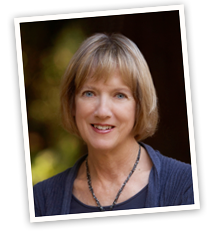Frequently Asked Questions
for Tangled Roots
- What caused you to go from genealogical research about your roots to a fictional story set in the colonies?
If you get very deep into genealogy on one of the popular websites, you can learn a lot about your ancestry. But most of it, especially the farther back in time you go, is limited to dates of birth and death and locations. You can’t help but wonder what life was like for these ancestors, so fictional storytelling is a logical by-product of genealogical research, at least for those of us who are perpetually in search of narratives to understand people, including ourselves.
- How hard is it to trace family history back this far?
It’s amazing how much information is available today online. If you start with reasonably good information about your grandparents and great-grandparents, you can tap into related family trees and leverage the work of others to expand your own tree. However, many mistakes are built into public family trees and you have to continue to correct and reconfigure family lines as you discover inaccuracies.
- Why did you pick these particular characters to write about?
My niece Dawn, to whom the book is dedicated, passed away last year and she was much interested in genealogy. She was amused by the fact that two brothers in our line had married their stepsisters, with further intermarriage in the next generation. My mother had used her connection to Matthew Locke as a path to join the Daughters of the American Revolution, which was a popular thing to do in her time, so I was familiar with his history. I became interested in Alex Turrentine through that family’s historical newsletter and went to one of their gatherings, pulled in by the fact that my ancestor had been an indentured servant and surprised that he had come into Philadelphia very close to the same time as the Locke family.
- How did you pull together pieces of history like the Crusades, the Northern Ireland plantations, the native tribes of colonial Pennsylvania and the Revolutionary War?
I’m not an historian, but I’ve always been interested in history. It’s fun to examine your ancestors in the context of what was going on in the world when they lived. Genealogical research is like trying to solve a mystery, as you try to puzzle through why someone was born in one place and died in another. Sometimes history can give you clues. When you’re writing historical fiction, there’s room for flights of imagination, but you always want to stay as close to the facts that are knowable about history as you can. Many times you feel torn between accuracy and storytelling.
- Was your depiction of Native Americans and African slaves influenced by current views about sensitivity towards such racial and cultural groups?
It’s extremely hard to write in first person with voices that are authentic for the time, while still respecting the changing expectations that apply to writers who depict characters from a group that is not their own. Yet I do understand that we can’t begin to change the way we approach racial issues without doing a better job of seeing the world as indigenous groups and other people of color might and trying to avoid the racial stereotypes that have been harmful to so many people for so long. I’m not sure I always hit the right note in this effort, but I have tried to the best of my ability to stay true to the way people felt and spoke in the 18th century without yielding to stereotyping.
